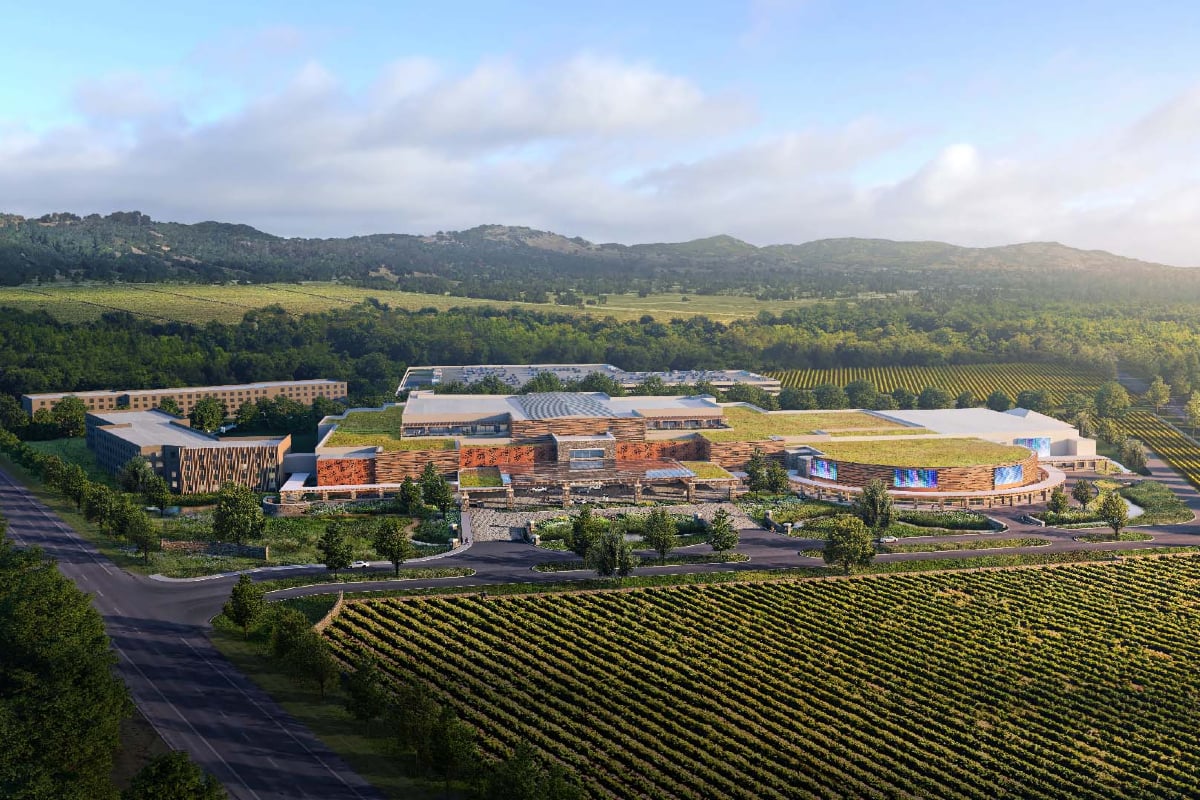California Wine Country in Sonoma Targeted for $600M Tribal Casino Resort
Posted on: September 15, 2021, 12:20h.
Last updated on: September 15, 2021, 02:42h.
A Native American tribe in California wine country that recently gained federal recognition is planning to develop a casino resort just north of Santa Rosa in Sonoma County.

The Koi Nation only gained federal recognition in 2019. The tribe this month acquired 68 acres of land on East Shiloh Road in unincorporated Sonoma County for $12.3 million. The parcel was previously used as a vineyard and private residential estate.
The Koi Nation submitted its newly acquired acreage to the US Department of the Interior to have the property taken into federal trust. Should that happen, the land would be deemed Koi Nation sovereign territory, and the tribe would obtain federal privileges to operate Class II gaming there.
However, for Class III gaming, which includes most games found in a traditional casino, such as slot machines and house-banked table games like blackjack and roulette, the tribe would need to reach a revenue-sharing agreement with the state of California.
Should the DOI and its Bureau of Indian Affairs deem the E. Shiloh Land as sovereign Koi Nation property, the tribe says it will move forward with a $600 million development called the Shiloh Resort & Casino. The initial scope calls for 2,500 slot machines and table games, a low-rise 200-room hotel, six restaurants, meeting space, and a spa. The facility would be entirely nonsmoking.
Small Tribe, Big Development
The Koi Nation claims to be descendants of one of the oldest Pomo tribes in Northern California. Koi people have “a history in the region of Sonoma and Lake Counties that goes back 17,000 years,” they say.
Today, the tribe has only around 90 members. Koi officials explain that their casino proposal, which is being developed and funded with outside investors, will spur a revival of the Native American community. Tribal leaders also contend that it will right more than 150 years of wrongs committed by the federal government.
The Koi Nation has been landless since the 1850s, when, it argues, the United States stole its sovereign territory.
“The Koi Nation has had to struggle harder than almost any other tribe in California to reestablish our sovereignty,” opined Darin Beltran, tribal chair of the Koi Nation. “It is time to exercise our rights as a federally recognized Tribe to have our own land and to control our own destiny,” Beltran declared.
Sour Grapes
Local officials in Sonoma County have a long history of opposing tribal casino resorts in the area. However, federal and state law supersede such opposition.
Sonoma County is home to two tribal casinos equipped with slot machines and table games.
The Graton Resort & Casino, owned and operated by the Federated Indians of Graton Rancheria, has over 3,000 slot machines and 100 table games. The River Rock Casino, owned and operated by the Dry Creek Rancheria Band of Pomo Indians, offers guests 1,500 slot terminals and a few dozen table games.
Sonoma is additionally home to three card clubs.
Related News Articles
Most Popular
Mirage Las Vegas Demolition to Start Next Week, Atrium a Goner
Where All the Mirage Relics Will Go
Most Commented
-
Bally’s Facing Five Months of Daily Demolition for Chicago Casino
— June 18, 2024 — 12 Comments
















No comments yet